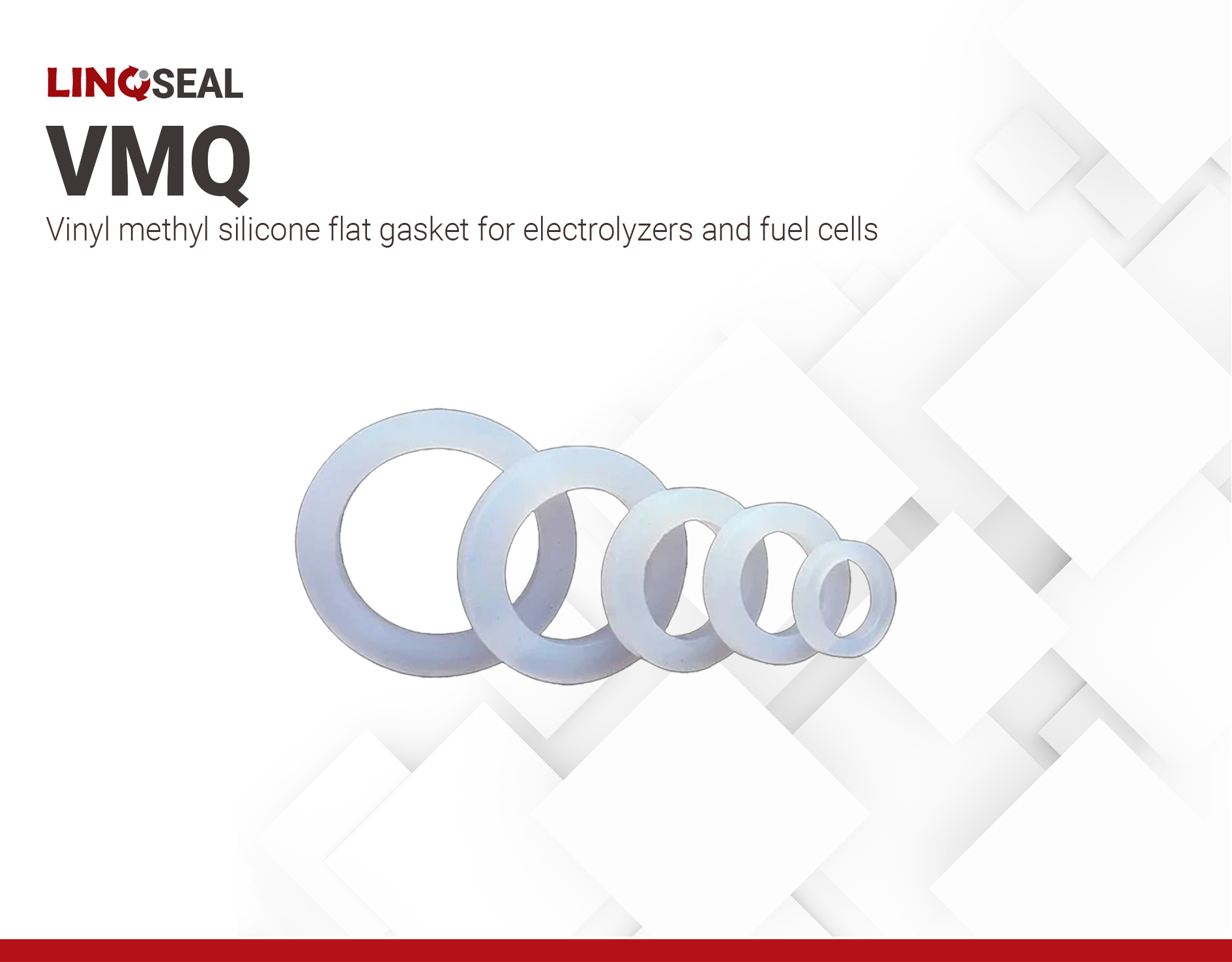LINQSEAL GS-VMQ
- High flexibility
- Wide temperature stability (–50 °C to 210 °C)
- Good ozone and weather resistance
Product Description
LINQSEAL GS-VMQ gaskets are made from silicone rubbers with flexible siloxane (Si–O–Si) backbones. Vinyl methyl silicone rubbers contain vinyl (−CH=CH2) in addition to methyl groups (–CH3) in the most common silicone rubber (polydimethylsiloxane). This structure offers good flexibility, resistance to water and chemicals, and sealing performance. LINQSEAL GS-VMQ possesses excellent resistance to extreme temperatures from –55 °C to 210 °C. It also exhibits low compression sets, meaning it maintains its shape and sealing properties over time, ensuring reliable performance throughout the operational life of the system.
Custom LINQSEAL GS-VMQ gaskets can be tailored precisely to your specifications and drawings. The thickness ranges from 0.5 to 5.0 millimeters. The maximum dimensions are 1500 × 1500 mm2, while the minimum dimensions are 100 × 100 mm2.
Key Features:
- Outstanding low temperature flexibility
- Excellent heat and oxidative stability
- High temperature stability (–50 °C to 210 °C)
- Low compression set
- Hydrophobic
Highly Recommended As:
- Seals in food, pharmaceutical, medicine, and cosmetics manufacturing
- Flat gaskets for water electrolyzers and fuel cells
Technical Specifications
| Mechanical Properties | |||||
| |||||
| Elongation Elongation Elongation is the process of lengthening something. It is a percentage that measures the initial, unstressed, length compared to the length of the material right before it breaks. It is commonly referred to as Ultimate Elongation or Tensile Elongation at break. | 350 % | ||||
| |||||
| Thermal Properties | |||||
| Operating Temperature | –50 to 210 °C | ||||



